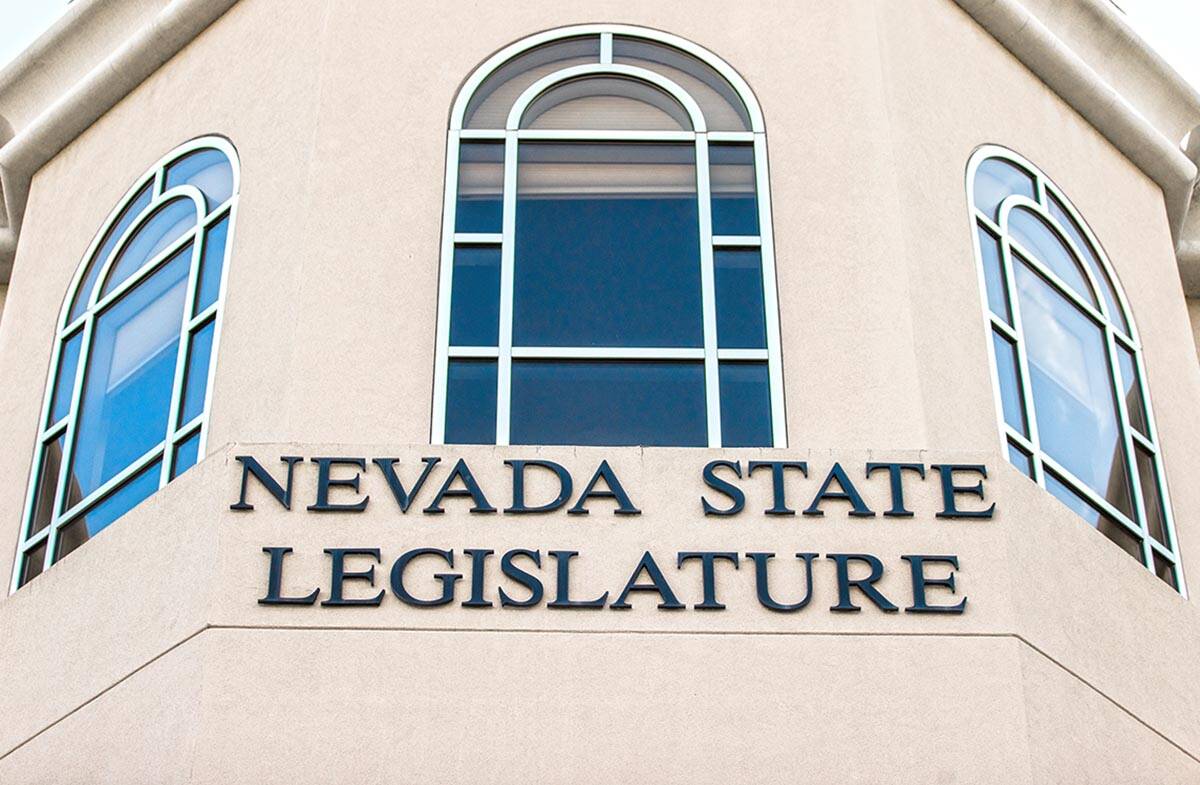Nevada Legislature’s redistricting plan heads toward final approval
CARSON CITY — An amended redistricting plan from the Democratic legislative majority again came under sharp criticism from Republicans and Hispanic and Latino groups Monday but continued to move through the Legislature toward possible final votes in both houses Tuesday.
The amended plan passed out of Assembly committee on a party line vote Monday afternoon after more than two hours of testimony and is now scheduled for a final vote in the Assembly Tuesday. If it passes as expected, the amended bill would have to return to the Senate for concurrence with the changes.
“What I always heard was if nobody’s happy, it’s probably a good bill, because it’s been a work of compromise,’’ Assemblywoman Jill Dickman, R-Sparks, said in speaking against the bill in committee Monday. “But when you look at the diverse groups who are not happy with this bill, it’s clear that it’s not because of compromise or discussion. It seems to me that no one has been listened to.”
Democrats hold majorities in both houses of the Legislature and have controlled the redistricting agenda. The main redistricting bill, Senate Bill 1, redraws the state’s four congressional districts, 21 state Senate districts and 42 Assembly districts. Lawmakers have already approved redrawn districts for the 13 seats on the Nevada System of Higher Educations Board of Regents.
The original version of the Senate bill drew heavy opposition in a four-hour committee meeting Saturday but moved to the Senate floor where it was adopted Sunday, with Democrats saying amendments to the plan would be taken up when the bill reached the Assembly.
Minor edits to plan
The amendments represent fairly minor tweaks to district lines in response to one-off concerns raised in Saturday’s hearing, such as not splitting tribal communities, municipalities and neighborhoods across separate districts. The changes did not address fundamental objections from Hispanic and Latino communities over their representation under the Democratic plan.
A rival Republican proposal, while more favorable to Republicans than the Democrats’ plan, also proposes districts with higher Hispanic and Latino representation. Republicans have honed their criticism of the Democratic proposal citing that argument, adding that the Democratic plan is overly favorable to Democrats and does not reflect actual partisan voter enrollment figures in the state.
State law requires only that districts maps be drawn according to official census numbers and that they reflect constitutional and statutory protections for minority representation. Partisan balance is not an official requirement.
Frustrating opponents and other questioners through the special session, which enters its fifth day Tuesday, is a lack of transparency over the policy decisions behind how the Democrats drew their maps.
Legislative staff presenting the plans speak only to what’s in the finished maps in terms of numbers, boundaries and percentages. Nowhere in the public discussion has there been an airing of how the maps were drawn.
Further clouding matters, there are multiple ways to interpret the data. Democrats, for example, note that their proposal includes majority-minority representation in three of four congressional districts, up from none currently; nine of 21 Senate districts, up from two currently; and 20 of 42 Assembly districts, up from five currently.
Republicans, focusing on Hispanic district representation, argue their proposal includes a higher number of districts where the Hispanic population is higher than 40 percent. That includes one congressional district, five state Senate districts, and 10 Assembly districts. The Democratic plan has no congressional districts that are more than 40 percent Hispanic but includes four Senate districts and seven Assembly districts that are.
^
Contact Capital Bureau reporter Bill Dentzer at bdentzer@reviewjournal.com. Follow @DentzerNews on Twitter.






















